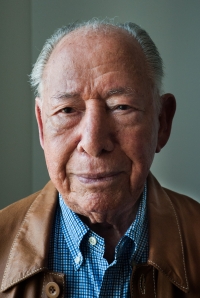I was lucky to live in the United States, but I was unlucky not to live in my country.

Stáhnout obrázek
Diego Suarez was born November 11, 1926 into a poor peasant family in Cuba. He had eight siblings. He graduated from the Higher Technical Lyceum, a school that was founded for children from socially weaker families. But already at this school he discovered his passion for technology, technical machines and their production. In 1944 he went to the capital of Cuba, where he continued with his hobby and he managed to build a large company that produced agricultural machinery and necessary equipment especially for the processing of sugar cane. After the revolution, he worked as an adviser at the Cuban Agricultural Institute, and the government bought equipment and equipment from his company for government purposes. In the early 1960s, however, the situation ceased to be bearable, and Diego decided to leave for the US with his family. He had the necessary permits for everything. Upon arrival in the US, he tried to continue his work. Diego managed to develop a new type of tires for agricultural machinery and became a recognized industrialist. Not only because of his position, but also because of his good economic situation, he supported Cuban exile in the fight for freedom and democracy on the island. He financed various projects, helped to establish foundations, stood at the birth of Radio Martí and later also the TV channel Martí. He was always convinced that people needed to hear the truth not only about Fidel Castro, but also about the horrors that people on the island must experience. Diego knows he‘ll never return to his homeland, but he hopes his children and grandchildren will succeed. His desires, endeavours and dreams for Cuba to be a free country again will not be silenced. On the contrary, his company even lent one of the foundations an aircraft, in which its representatives were transported around the world for negotiations with important statesmen.
